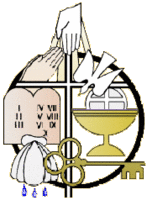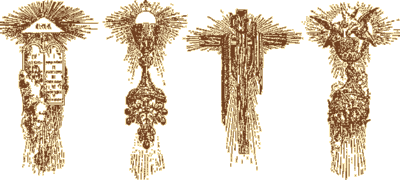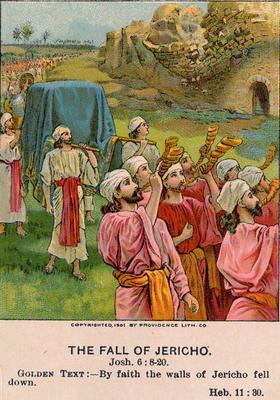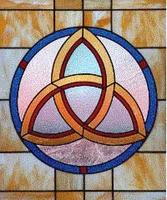A New Christian Is Sorely Tempted
Q: I recently gave my life completely to Jesus Christ, and promised to walk with Him forever. I have now been getting evil and bad thoughts, such as hurting Jesus, hurting children, etc. Do you believe they are attacks from the devil? I ask God to rid me of these and confess them: Does He forgive?
A: Let’s look at what you’ve written and what you’re facing from a few different angles. First, the evil thoughts themselves: Do they come regularly, at odd intervals, or constantly? How do you envision hurting Jesus or children? Are these general thoughts of malice or are they clear and specific? Have they become any more frequent, vivid, or intense over time?
I don’t examine you so I can deal directly with your problem: You need to take our discussion here to your own pastor and, perhaps, your own family. Whether this temptation comes from within or without, it sounds serious.
I don’t know enough to help determine whether these are direct “attacks from the devil” or whether you are forming them within yourself. (And yes, Christians still have their old, sinful natures struggling against God and His will for us.) Furthermore, living in a fallen, sin-damaged world, burdens many of us with various emotional and mental afflictions which may lead us to think or act in ways contrary to Scripture and rational thought. Some temptations come directly from the devil and the evil angels. Others are demonic forces preying upon our personal weaknesses. Still others flow directly from our own brokenness.
You need to examine the situation carefully so others closer to you can help you make the right decisions concerning addressing and treating these thoughts. With what I’ve already asked, here are some other questions which can help you receive fuller aid and comfort. Have you always had some form of these thoughts? Were you raised in a climate of fear or violence? Following your conversion, were there any other events which might have triggered or released pent-up rage, violence, or aggression? In other areas of your life (family, job, etc.), have you been feeling more pressure or hostility directed toward yourself?
You may be facing a purely spiritual problem. More likely, it involves spiritual and mental issues. You may need ministerial and medical assistance. Your pastor can work directly with you on the sinfulness of the desires, the assaults of Satan, and your need for forgiveness and peace in Christ while a doctor or counselor helps in diagnosing and treating other aspects of your affliction.
As I’ve written before on Christians and mental health, Satan uses our own weakness and illness as tools for temptation. Depending upon our own circumstances, he may tempt us to resist treatment out of guilt or shame, causing us to think, “It’s my fault that I’m not stronger,” or “I’m obviously not worthy of God’s love.” We may be moved to despair, doubting God’s love and His unceasing presence in our lives.
As God works physical healing through doctors and nurses and spiritual health through the ministrations of pastors, so He desires emotional and mental healing and provides counsel and medication. If this is part of what you need, trust that He’ll not love you less nor be less a part of your life. Indeed, if you find yourself more helpless than you thought, you’ll encounter even more completely the God whose “power is made perfect in weakness. (2 Corinthians 12:9)”
 Finally, I need to spend a moment with you concerning your giving your life to Jesus. From our perspective, it seems that this is what we do. In actuality, He comes to us and makes us His own: We “give ourselves” to Him only as we respond to Him giving Himself to us.
Finally, I need to spend a moment with you concerning your giving your life to Jesus. From our perspective, it seems that this is what we do. In actuality, He comes to us and makes us His own: We “give ourselves” to Him only as we respond to Him giving Himself to us.While we may fail our well-intentioned promises to Him, He will never fail in His promises to us. It’s vital that you understand this as you struggle with temptation!
When we base our relationship with God upon our own thoughts and actions, we set ourselves up for calamity. Especially in times of testing, when we realize how weak and shifting our faith can be, we need to know that God is infinitely unchanging, overwhelmingly powerful, and ever gracious. If we consider ourselves saved because we “decided” to align ourselves with God, we may then “un-decide” and go back to our old, sinful ways. Be confident: God chose you, claimed you, baptized you, and constantly comes to you through Word and Spirit; now He works to continually convince you that He won’t abandon you in your great need.
So, whether the temptation comes from within, without, or through both, know that “we do not have a high priest who is unable to sympathize with our weaknesses, but one who in every respect has been tempted as we are, yet without sin. (Hebrews 4:15)” Doubtless, Jesus heard the devil’s lies in whispers and in roars. He knew the pain He would face if He stayed the course and delivered Himself up to be crucified. Yet He still did it — out of love for you, me, and all mankind. This love you may call upon in every trouble.
Please, honestly and completely provide yourself with answers to my questions and any others which you might ask yourself. Print out this reply with your response and take them to your pastor and, as you may need, to a competent and concerned physician or counselor. Don’t let Satan talk, guilt, or shame you out of seeking the help you need to address the fulness of your problems so that you might also receive the fulness of God’s healing, both through His Word of grace and mediated through the ministrations of those people He sends to help you. Yes, dear friend, He does forgive. He also heals or gives strength to carry on through all your afflictions.
Scripture quoted from The Holy Bible, English Standard Version™, © 2001 by Crossway Bibles.
Send email to Ask the Pastor.
Walter Snyder is the pastor of Holy Cross Lutheran Church, Emma, Missouri and coauthor of the book What Do Lutherans Believe.













